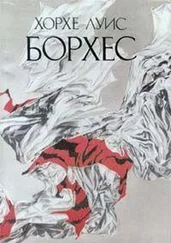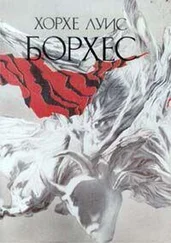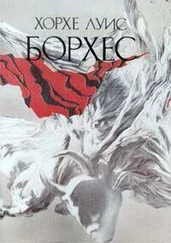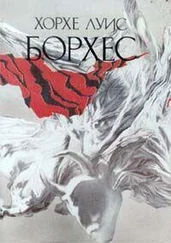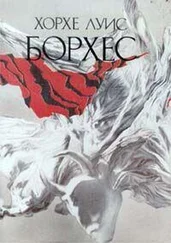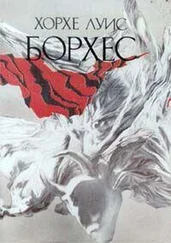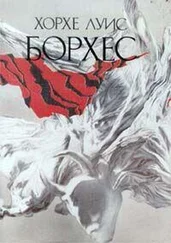Хорхе Борхес - Collected Fictions
Здесь есть возможность читать онлайн «Хорхе Борхес - Collected Fictions» весь текст электронной книги совершенно бесплатно (целиком полную версию без сокращений). В некоторых случаях можно слушать аудио, скачать через торрент в формате fb2 и присутствует краткое содержание. Год выпуска: 1999, ISBN: 1999, Издательство: Penguin (UK), Жанр: Старинная литература, на английском языке. Описание произведения, (предисловие) а так же отзывы посетителей доступны на портале библиотеки ЛибКат.
- Название:Collected Fictions
- Автор:
- Издательство:Penguin (UK)
- Жанр:
- Год:1999
- ISBN:9780140286809
- Рейтинг книги:5 / 5. Голосов: 1
-
Избранное:Добавить в избранное
- Отзывы:
-
Ваша оценка:
- 100
- 1
- 2
- 3
- 4
- 5
Collected Fictions: краткое содержание, описание и аннотация
Предлагаем к чтению аннотацию, описание, краткое содержание или предисловие (зависит от того, что написал сам автор книги «Collected Fictions»). Если вы не нашли необходимую информацию о книге — напишите в комментариях, мы постараемся отыскать её.
Collected Fictions — читать онлайн бесплатно полную книгу (весь текст) целиком
Ниже представлен текст книги, разбитый по страницам. Система сохранения места последней прочитанной страницы, позволяет с удобством читать онлайн бесплатно книгу «Collected Fictions», без необходимости каждый раз заново искать на чём Вы остановились. Поставьте закладку, и сможете в любой момент перейти на страницу, на которой закончили чтение.
Интервал:
Закладка:
THE METHOD
Horses stolen in one state and sold in another were but the merest digression in Morell's criminal career, but they did prefigure the method that would assure him his place in a Universal History of Iniquity. His method was unique not only because of the suigeneris circumstances that shaped it, but also because of the depravity it required, its vile manipulation of trust, and its gradual evolution, like the terrifying unfolding of a nightmare. Al Capone and Bugs Moran operate with lavish capital and subservient machine guns in a great city, but their business is vulgar. They fight for a monopoly, and that is the extent of it.... In terms of numbers, Morell at one time could command more than a thousand sworn confederates. There were two hundred in the Heads, or General Council, and it was the Heads that gave the orders that the other eight hundred followed. These "strikers," as they were called, ran all the risk. If they stepped out of line, they would be handed over to the law or a rock would be tied to their feet and their bodies would be sunk in the swirling waters of the river. Often, these men were mulattoes. Their wicked mission was this:
In a momentary wealth of gold and silver rings, to inspire respect, they would roam the vast plantations of the South. They would choose some wretched black man and offer him his freedom. They would tell him that if he'd run away from his master and allow them to resell him on another plantation far away, they would give him a share of the money and help him escape a second time. Then, they said, they'd convey him to free soil.... Money and freedom—ringing silver dollars and freedom to boot—what greater temptation could they hold out to him? The slave would work up the courage for his first escape.
The river was a natural highway. A canoe, the hold of a riverboat, a barge, a raft as big as the sky with a pilothouse on the bow or with a roof of canvas sheeting ... the place didn't matter; what mattered was knowing that you were moving, and that you were safe on the unwearying river.... They would sell him on another plantation. He would run away again, to the sugarcane fields or the gullies. And it would be then that the fearsome and terrible benefactors (whom he was beginning to distrust by now) would bring up obscure "expenses" and tell him they had to sell him one last time. When he escaped the next time, they told him, they'd give him his percentage of the two sales, and his liberty. The man would let himself be sold, he would work for a while, and then he would risk the dogs and whips and try to escape on his own. He would be brought back bloody, sweaty, desperate, and tired.
THE FINAL FREEDOM
We have not yet considered the legal aspect of the crime. The Negro would not be put up for sale by Morell's henchmen until his escape had been advertised and a reward offered for his capture. At that point, anybody could lay hold of the slave. Thus, when he was later sold, it was only a breach of trust, not stealing, and it was pointless for the owner to go to law, since he'd never recover his losses.
All this was calculated to leave Morell's mind at ease, but not forever. The Negro could talk; the Negro was capable, out of pure gratitude or misery, of talking. A few drinks of rye whiskey in a whorehouse in Cairo, Illinois, where the slave-born son of a bitch went to squander some of those silver dollars burning a hole in his pocket (and that they'd no reason to give him, when it came right down to it), and the cat would be out of the bag. The Abolitionist Party was making things hot in the North during this time—a mob of dangerous madmen who denied a man's right to his own property, preached the freeing of the blacks, and incited the slaves to rebellion. Morell was not about to let himself be confused with those anarchists. He was no Yankee, he was a Southerner, a white man, the son and grandson of white men, and he hoped someday to retire from his business and be a gentleman and possess his own league upon league of cotton fields and his own bow-backed rows of slaves. With his experience, he was not a man to take point-less risks.
The runaway expected his freedom. Therefore, the nebulous mulattoes of Lazarus Morell would give a sign (which might have been no more than a wink) and the runaway would be freed from sight, hearing, touch, daylight, iniquity, time, benefactors, mercy, air, dogs, the universe, hope, sweat—and from himself. A bullet, a low thrust with a blade, a knock on the head, and the turtles and catfish of the Mississippi would be left to keep the secret among themselves.
THE CATASTROPHE
Manned by trustworthy fellows, the business was bound to prosper. By early 1834, some seventy Negro slaves had been "emancipated" by Morell, and others were ready to follow their fortunate forerunners. The zone of operations was larger now, and new members had to be admitted to the gang. Among those who took the oath, there was one young man, Virgil Stewart, from Arkansas, who very soon distinguished himself by his cruelty. This boy was the nephew of a gentleman who had lost a great number of slaves. In August of 1834, he broke his vow and denounced Morell and the others. Morell's house in New Orleans was surrounded by the authorities, but Morell somehow (owing to some oversight—or a bribe in the right quarters) managed to escape.
Three days passed. Morell hid for that period in an old house with vine-covered courtyards and statues, on Toulouse Street. Apparently he had almost nothing to eat and spent his days roaming barefoot through the large, dark rooms, smoking a thoughtful cheroot. Through a slave in the house, he sent two letters to Natchez and another to Red River. On the fourth day, three men entered the house; they sat talking things over with Morell until almost daybreak. On the fifth day, Morell got out of bed at nightfall, borrowed a razor, and carefully shaved off his beard. He then dressed and left the house. Slowly and calmly he made his way through the northern outskirts of the city. When he reached open country, out in the bottomlands of the Mississippi, he breathed easier.
His plan was one of drunken courage. He proposed to exploit the last men that still owed him respect: the accommodating Negroes of the South-land themselves. These men had seen their comrades run away, and had not seen them brought back. They thought, therefore, that they'd found freedom. Morell's plan called for a general uprising of the Negroes, the capture and sack of New Orleans, and the occupation of the territory. A pitiless and depraved man, and now almost undone by treachery, Morell planned a response of continental proportions—a response in which criminality would become redemptive, and historic. To that end, he headed for Natchez, where his strength ran deeper. I reproduce his own narration of that journey:
"I walked four days," he reported, "and no opportunity offered for me to get a horse. The fifth day, I had... stopped at a creek to get some water and rest a while. While I was sitting on a log, looking down the road the way that I had come, a man came in sight riding on a good-looking horse. The very moment I saw him, I was determined to have his horse.... I arose and drew an elegant rifle pistol on him and ordered him to dismount. He did so, and I took his horse by the bridle and pointed down the creek, and ordered him to walk before me. He went a few hundred yards and stopped. I ... made him undress himself, all to his shirt and drawers, and ordered him to turn his back to me. He said, 'If you are determined to kill me, let me have time to pray before I die.' I told him I had no time to hear him pray. He turned around and dropped on his knees, and I shot him through the back of the head. I ripped open his belly and took out his entrails, and sunk him in the creek. I then searched his pockets, and found four hundred dollars and thirty-seven cents, and a number of papers that I did not take time to examine. I sunk the pocket-book and papers and his hat, in the creek. His boots were bran-new, and fitted me genteelly; and I put them on and sunk my old shoes in the creek....
Читать дальшеИнтервал:
Закладка:
Похожие книги на «Collected Fictions»
Представляем Вашему вниманию похожие книги на «Collected Fictions» списком для выбора. Мы отобрали схожую по названию и смыслу литературу в надежде предоставить читателям больше вариантов отыскать новые, интересные, ещё непрочитанные произведения.
Обсуждение, отзывы о книге «Collected Fictions» и просто собственные мнения читателей. Оставьте ваши комментарии, напишите, что Вы думаете о произведении, его смысле или главных героях. Укажите что конкретно понравилось, а что нет, и почему Вы так считаете.

